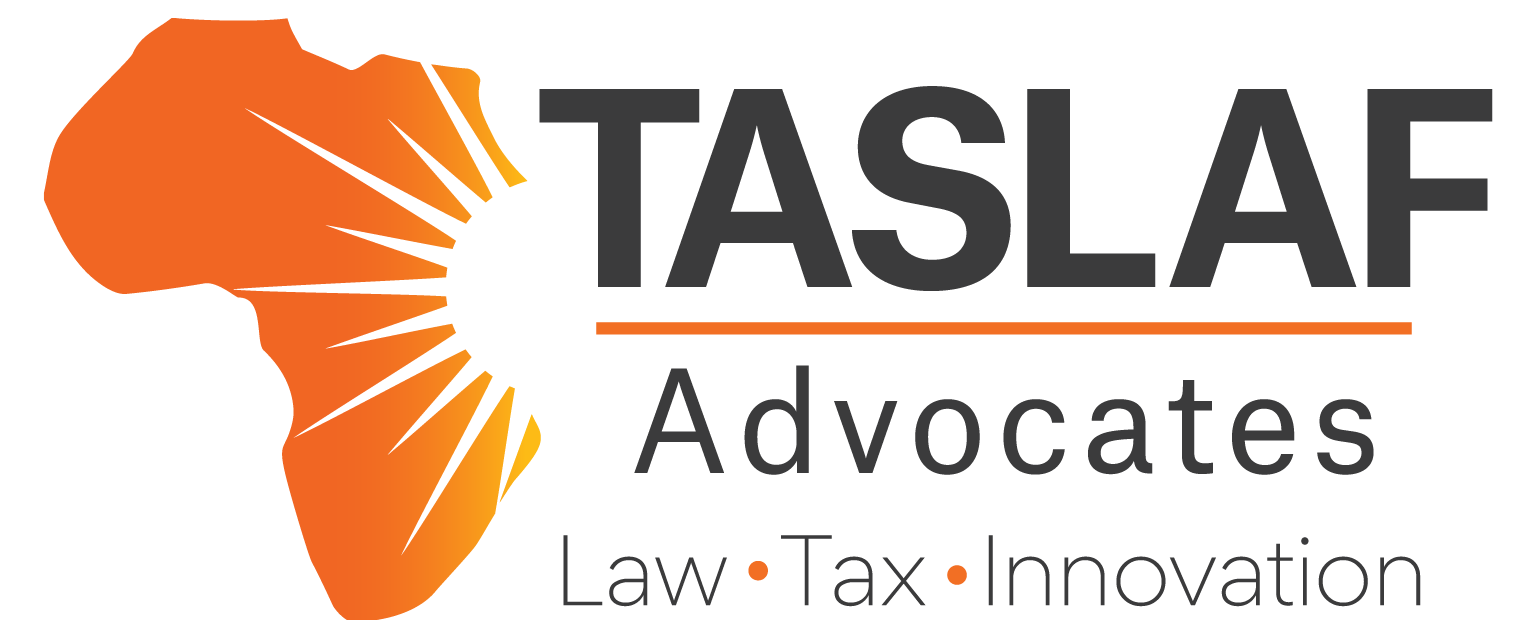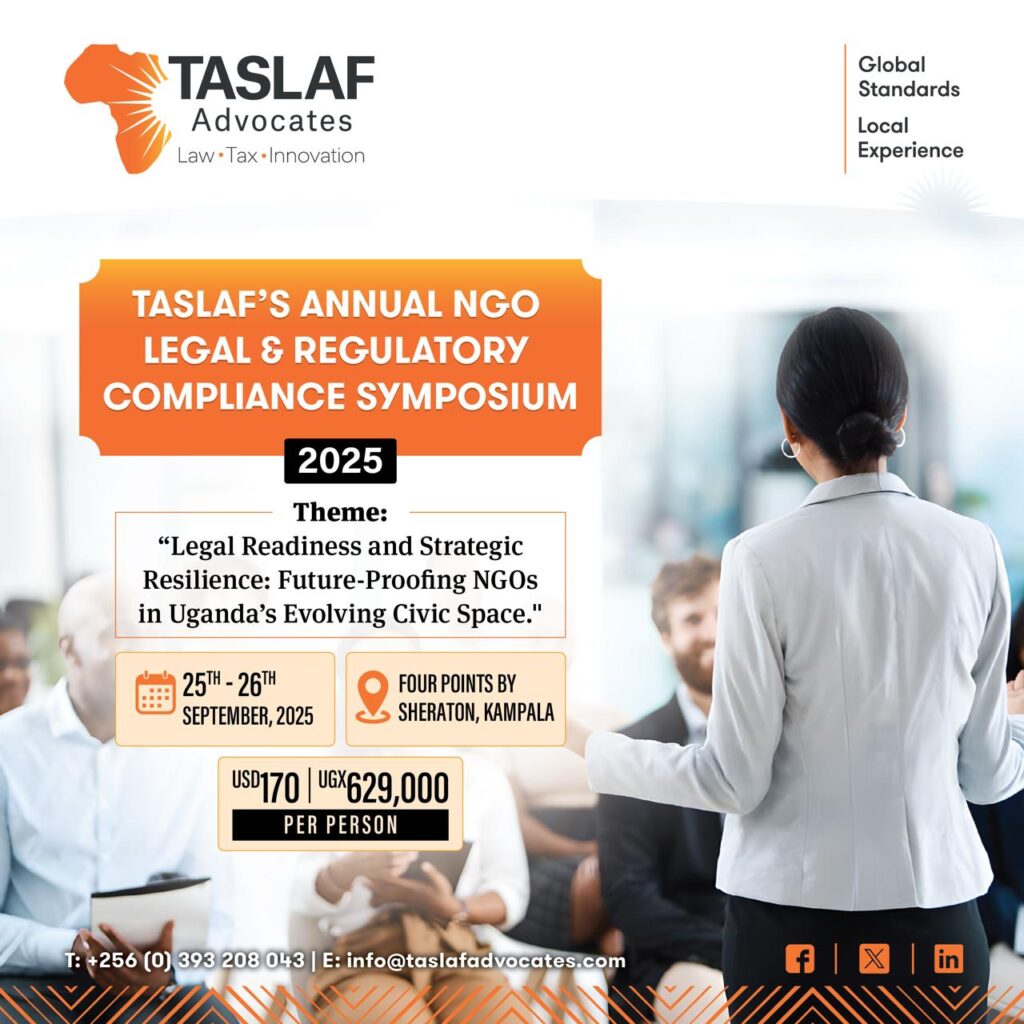Introduction
The recent suspension of donor funding, follow- ing the U.S. Department of State’s directive under the President’s Executive Order on Reevaluating and Realigning United States Foreign Aid, has significantly disrupted Uganda’s nonprofit sector. Effective January 24, 2025, all affected awards have been suspended, halting operations, prohibiting new expenditures, and requiring the cancellation of outstanding obligations. Additionally, the directive explicitly bans the use of U.S. government funds for any activities related to diversity, equity, and inclusion (DEI). As a result, many NGOs now face operational paralysis, unpaid salaries, and an uncertain future for both employees and the vulnerable communities they serve.
For NGOs implementing USAID and U.S.-funded projects, the challenge is twofold: how to stay afloat amid financial strain while remaining com- pliant with legal, contractual, and ethical employ- ment obligations. Missteps could lead to lawsuits, reputational damage, or even permanent closure.
This article unpacks key legal considerations and strategic steps that nonprofits can take to weather this storm—ensuring compliance, mitigating risks, and protecting both their workforce and mission.
Contractual commitments.
The law recognizes a situation where circumstanc- es beyond anyone’s control prevent a contract from being carried out as agreed.
Under Uganda’s Contracts Act, if a contract is frus- trated (meaning it can no longer be performed due to unforeseen events), both parties are automati- cally released from their obligations. In simple terms: if something extreme happens that makes it impossible to do what was agreed upon, no one is legally bound to continue with the contract. Ad- ditionally, any payments that were supposed to be made under the contract are no longer required once frustration is established.
A typical example of frustration is when a do- nor—such as USAID or another U.S. government agency—suddenly changes its policies and or- ders the suspension of all projects it was fund- ing. This abrupt shift leaves NGOs unable to continue operations, pay employees, or meet oth- er contractual obligations. Since these organiza- tions relied entirely on donor funding to fulfill their contracts, they now find themselves in a le- gally impossible situation. In such cases, frustra- tion provides a legal basis for terminating contracts without penalties, as the situation was beyond anyone’s control.
In times of unprecedented crises, such as these, a Force Majeure clause can be a lifeline for organi- zations struggling to meet their contractual obli- gations. This clause, if properly included in a contract, allows parties to temporarily suspend their responsibilities due to circumstances beyond their control, such as external political decisions or donor funding suspensions.
Force Majeure, derived from French meaning “major force,” is also referred to as an Act of God. Legally, it’s a provision that relieves one or both parties from liability or the duty to fulfill the con- tract when extraordinary events occur that are be- yond their control. These events are usually unforeseen and not caused by any actions of the parties involved. Typical examples include natu- ral disasters, wars, strikes, epidemics, government orders, and other disruptive events.
While many contracts include a Force Majeure clause, it’s important to note that even if it’s not explicitly stated in the agreement, the law in Ugan- da may provide for such a concept within its stat- utory provisions. In these cases, the principle of
Force Majeure can still be invoked, providing or- ganizations with a legal framework to temporari- ly suspend performance without breaching their obligations.
For NGOs and other organizations, it is essential that contracts are carefully drafted to include a clearly defined Force Majeure clause. This should outline specific events that qualify as Force Majeure and set clear steps for how to proceed if such an event occurs. Having such provisions in place ensures the organization is legally protected and can respond swiftly during a crisis.
Steps to take to handle contractual obligations
• Review contracts carefully: Organisations should review their contracts to ensure that if they indeed contain a frustration/force ma- jeure clause, the same covers a political event. To this extent, the guidelines contained in the clause will guide the organisation’s next steps.
• Invoke the clause cautiously: Organizations must ensure that the situation genuinely qual- ifies as a Force Majeure event. For example, in employment matters, where a donor sus- pends funding or changes policies, it must be shown that such circumstances prevent the organization from fulfilling its obligations. In Uganda, the Contracts Act also recognizes the concept of frustration in contracts, which may provide an alternative remedy if Force Majeure does not apply. However, organizations operating outside Uganda should seek local legal counsel to understand how this principle may be interpreted in other countries.
• Communicate clearly: When invoking frustration of contract or a force majeure clause under a contract, it is important to notify the employees and contractors to the contract promptly and transparently about the situation causing the impossibility of performing the obligations under the contract. This communication should cite the specific circumstances and how it has impacted the organisation’s ability to meet its obligations.
• Document everything: It is important to keep records of the notices and correspondences sent and received. For example, a notice communicating the suspension of contractual obligations due to political events should clearly
state the date on which the suspension takes effect. It is also critical to document any communication from Donor Agencies, legal notices, and any evidence supporting the suspension of funding due to the political event. This pro- tects your organisation in case of legal scrutiny.
Salary Reductions.
Some organizations, particularly those facing funding suspensions or other financial crises, may find themselves in a position where they need to reduce employee salaries. For example, if a pro- gram was only funding 50% of an employee’s salary, the organization might consider reducing the salary further. However, it’s important to note that salary reductions cannot be implemented unilaterally by an employer, especially when such a change is detrimental to the employee.
Under Ugandan employment law, employers can- not arbitrarily alter the terms and conditions of an employee’s engagement, particularly when such changes negatively affect the employee. If an employer wishes to reduce an employee’s salary, it must obtain the employee’s written consent. This ensures that the employee is fully aware and in agreement with the change.
If an employer attempts to implement salary reductions without the employee’s consent, the employee may have grounds for a legal claim. This could be seen as a breach of a fundamental term of the employment contract, which could lead to legal action, compensation claims, or even dis- missal of the change.
For organizations navigating this challenging situation, it’s essential to engage in transparent discussions with employees, seek consent for any salary adjustments, and ensure that changes align with employment laws and contractual obligations.
Collective Terminations.
In cases where donor funding remains suspended or completely cut off, an organization may find it- self in the difficult position of having to carry out collective terminations. This usually happens when the organization is no longer able to support the roles and positions that were previously fund- ed by the donor.
Under the Employment Act Cap 226, specific procedures must be followed when declaring positions redundant, particularly in cases of economic hardship such as funding suspensions. The Act outlines the formal process for terminating employment due to redundancy, ensuring that the rights of employees are protected during such a significant change. This process remains unchanged even in the face of funding cuts, meaning that employers must follow the established steps, including notifying employees, notifying labour commissioner, Labour unions, and offering appropriate notice periods.
When carrying out collective terminations, employers must also consider the tax implications of any payouts or other compensations owed to employees. Such payments may be subject to taxation, and proper procedures need to be followed to ensure compliance with local tax regulations.
Failure to do so could result in additional legal or financial liabilities for the organization.
It’s crucial for organizations to consult legal and financial experts to navigate both the procedural and financial aspects of collective terminations, ensuring compliance with labor laws and minimizing risks to the organization.
Managing Employee Leave During
Funding Suspensions
When an organization faces funding suspensions and is unable to meet its financial obligations, forced leave may be considered as a temporary solution to reduce financial strain, while ensuring compliance with employment laws.
Depending on the organization’s policies and employment contracts, it may be permissible to re- quire employees to take their annual leave at a specific time. However, this must align with the terms of the employment agreement and local labor laws.
Employers must ensure that forced leave does not infringe on employees’ fundamental rights, including their right to fair treatment and remuneration as per their contracts. Additionally,
employees’ annual leave entitlement must not be reduced or revoked, and leave should not be imposed in a way that negatively impacts their financial well-being.
In some cases, forced unpaid leave may be considered, but only after transparent communication with employees and obtaining their written consent. It’s important to note that any form of unpaid forced leave without consent is unlawful.
Employers should be cautious to avoid creating unlawful deductions or breaching contract terms. Clear communication, transparency, and proper documentation are essential to avoid disputes or claims of unfair treatment.
Tax Implications.
Despite the financial challenges posed by funding suspensions, organizations in Uganda are still required to comply with their tax obligations under the Uganda Revenue Authority (URA) and the relevant Tax Laws. Unless there is a change in legislation or government policy, tax obligations must continue to be met. However, there are certain mitigating measures within the existing tax framework that nonprofits can take to ensure compliance during these tough times.
Guidance for Nonprofits.
Extensions for Filing Tax Returns:
Section 19 of the Tax Procedures Code Act allows NGOs to apply for an extension to file their income tax returns if they face challenges, such as a suspension of activities. You can request an extension of up to 90 days.
Extensions for Tax Payments:
If your organization is unable to meet its tax pay- ment deadline, Section 31 of the same Act allows NGOs to apply for an extension to pay the taxes due. The Commissioner General of the Uganda Revenue Authority (URA) has the discretion to either grant the requested extension or offer an al- ternative arrangement, such as paying in installments. This flexibility is important during times of financial difficulty.
When to Apply:
To take advantage of these extensions, it’s crucial to apply on time, before the original due date for either filing your return or making your payment. This ensures you can benefit from the grace periods available under the Tax Laws.
Withholding Taxes:
For taxes that are withheld from payments such as Withholding Tax (WHT) for suppliers and con- tractors, or Pay-As-You Earn (PAYE) for employees payments are due within 15 days after the end of the month in which the transaction occurs. If
no payments are made during a period, no tax is due.
Documenting Salary Reductions:
If your organization has negotiated salary reductions due to financial constraints, it’s essential to keep detailed records of the changes. This ensures that any withholding tax remitted to URA aligns with the adjusted amounts, and provides clear documentation should an assessment or audit occur.
By staying proactive in applying for extensions and maintaining clear records, nonprofits can better navigate financial challenges while remaining compliant with Uganda’s tax laws..
Conclusion
In conclusion, while navigating the challenges of funding suspensions, nonprofits must find a care- ful balance between safeguarding their operations and fulfilling their commitments to employees, stakeholders, and the communities they serve. By understanding and strategically utilizing legal tools such as the force majeure clause, as well as adhering to proper procedures, organizations can not only survive but emerge stronger. With thoughtful planning, transparent communication, and a commitment to their mission, nonprofits can successfully weather financial storms while re- maining steadfast in their objectives and values.
Our Employment & Tax Team:

Stephen Tumwesigye
Managing Partner
M: +256 (0) 774 334 908
E: stumwesigye@taslafadvocates.com

Partner
M: +256 759 757 180
E: dkyobutungi@taslafadvocates.com

Principal Associate
M: +256 787 726066
E: kayebare@taslafadvocates.com

Legal Associate
M: +256 781 843 633
E: gokitoi@taslafadvocates.com

Principal Tax Associate
E: jnamirembe@taslafadvocates.com
M: +256 703 392 531




